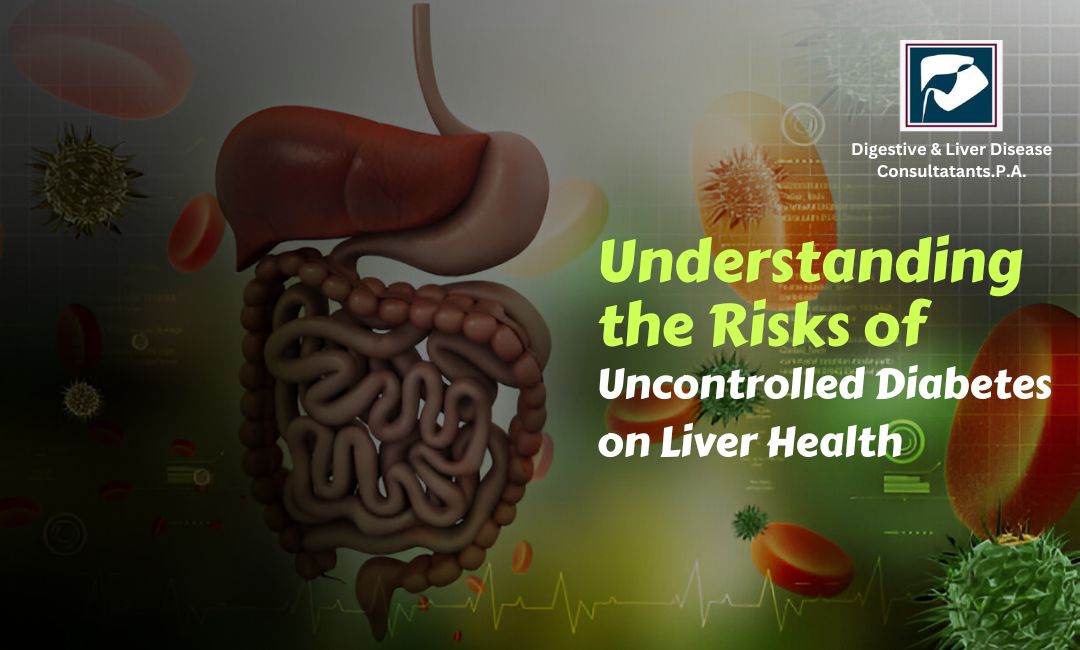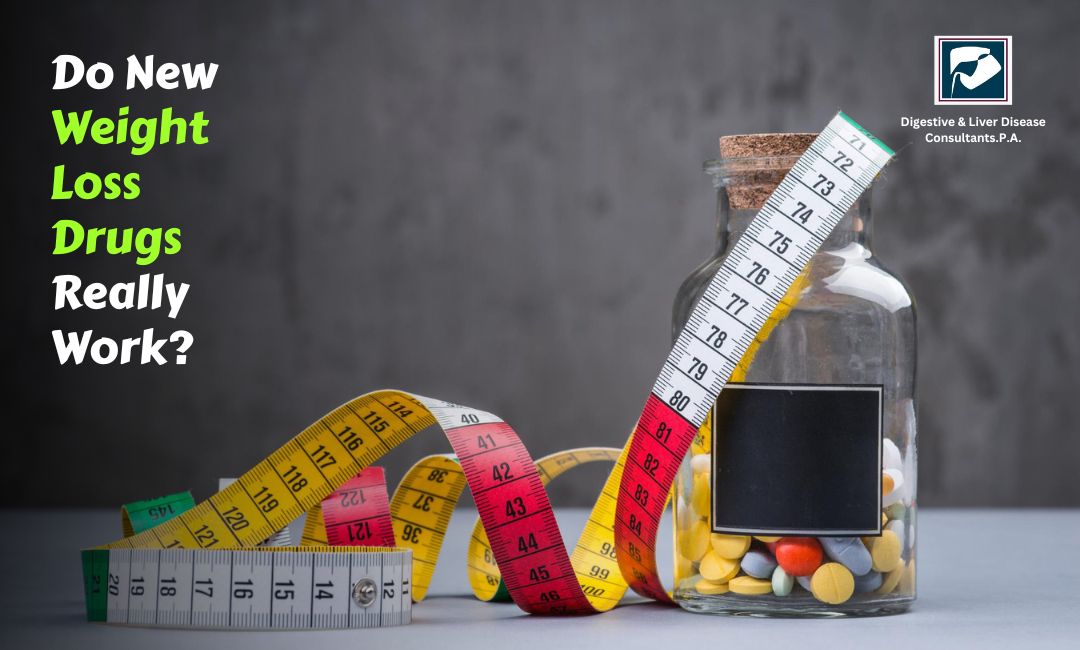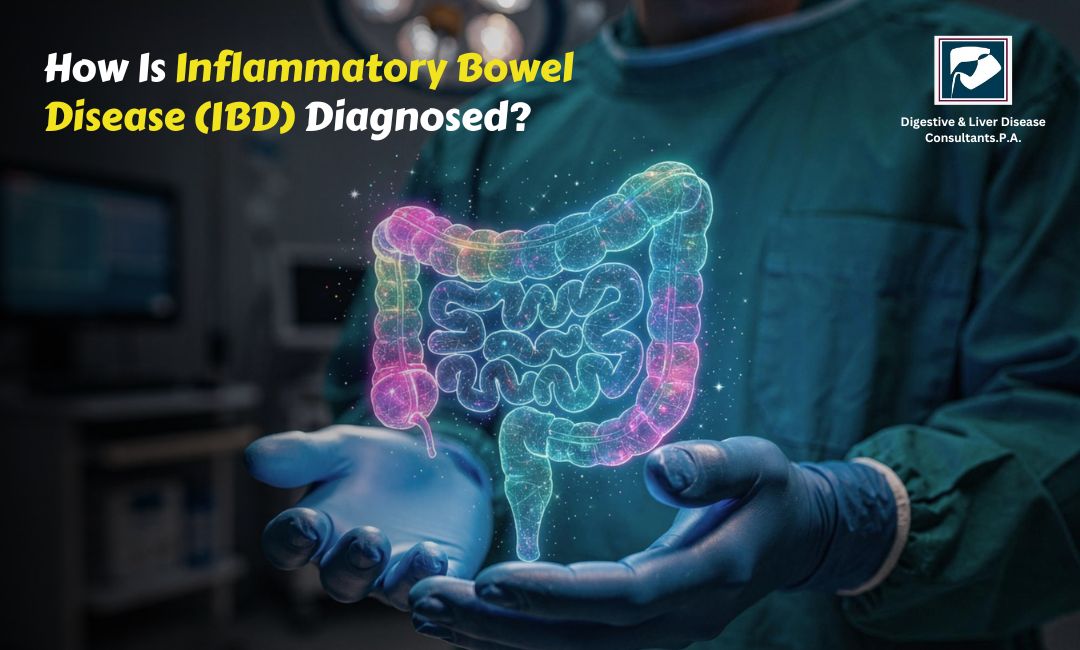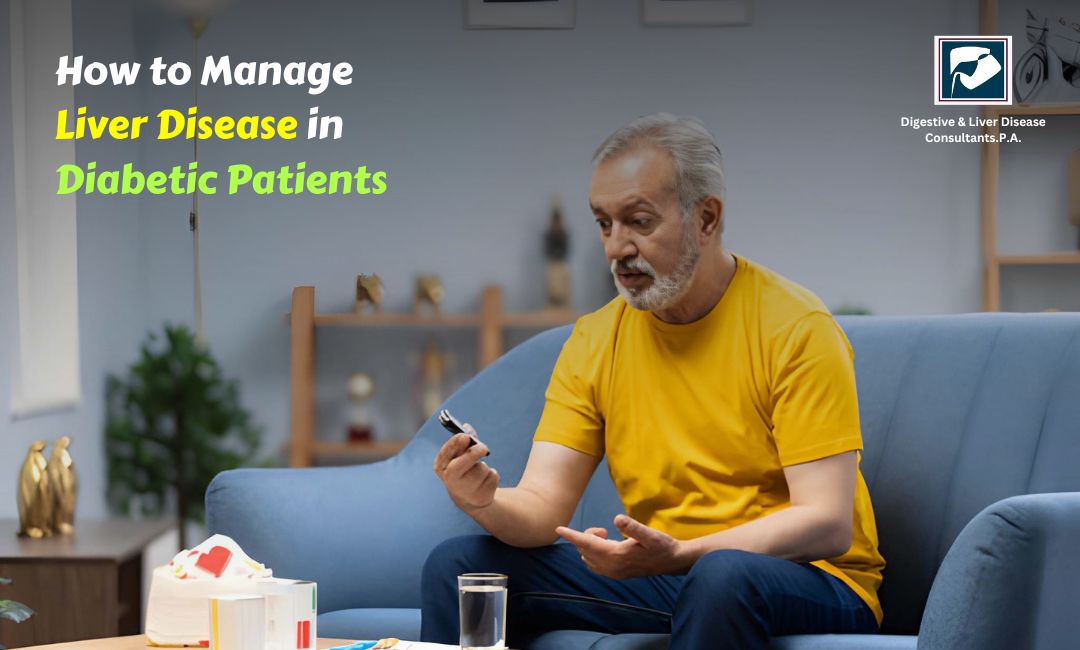Diabetes is a common and serious health condition that affects millions of people around the world. While many people know about its effects on blood sugar levels, eyesight, and heart health, fewer realise the connection between diabetes and liver health. Uncontrolled diabetes can have serious consequences for the liver, leading to conditions like fatty liver disease and liver inflammation.
At Digestive & Liver Disease Consultants, P.A., we believe that understanding this connection is key to protecting your health. In this blog, we’ll explain how diabetes affects the liver, the risks of leaving it unmanaged, and what you can do to keep your liver healthy.
What Is Diabetes?
Diabetes is a condition where the body has trouble regulating blood sugar (glucose) levels. This happens when the pancreas doesn’t produce enough insulin, or when the body can’t use insulin properly. Insulin is a hormone that helps move glucose from the blood into the cells, where it’s used for energy.
When diabetes is not controlled, high blood sugar levels can damage organs and tissues throughout the body—including the liver.
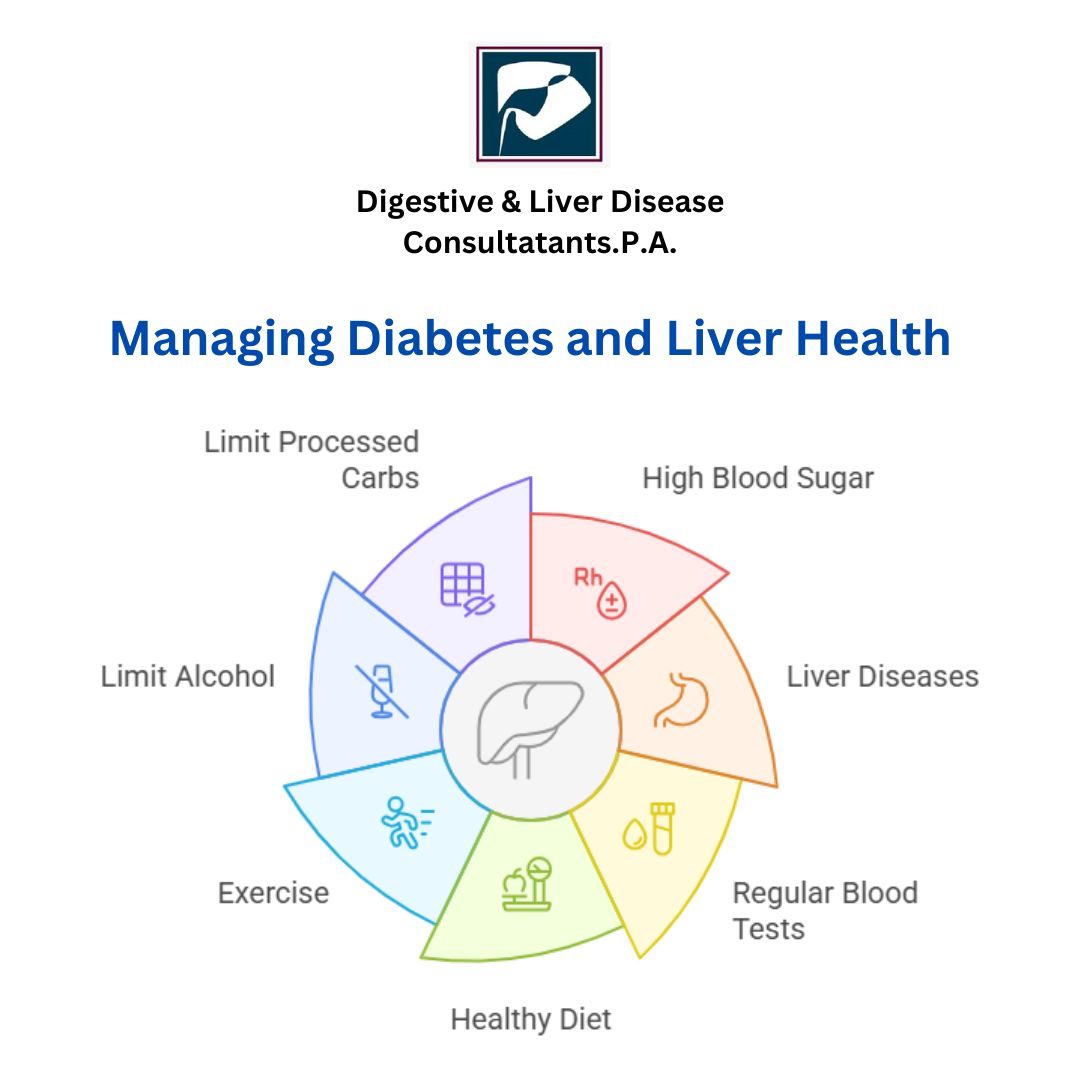
How the Liver Supports Blood Sugar Control
The liver plays an important role in managing blood sugar. It stores excess glucose and releases it into the bloodstream when needed. The liver also helps process insulin and regulates the balance of glucose in the body.
When you eat, your blood sugar rises, and the pancreas releases insulin to help cells absorb glucose. The liver responds by storing any extra glucose for later use. Between meals, the liver releases stored glucose to keep blood sugar levels steady.
If diabetes is uncontrolled, this natural process gets disrupted. High blood sugar and insulin resistance can overwhelm the liver, causing it to store too much fat and leading to long-term damage.
How Uncontrolled Diabetes Affects Liver Health
1. Non-Alcoholic Fatty Liver Disease (NAFLD)
The most common liver problem in people with diabetes is non-alcoholic fatty liver disease (NAFLD). This condition occurs when fat builds up in the liver, even in people who don’t drink much alcohol. Over time, NAFLD can lead to more serious liver issues.
Studies show that up to 70% of people with type 2 diabetes also have NAFLD. The main reason is that uncontrolled blood sugar levels cause fat to accumulate in the liver, leading to inflammation and liver cell damage.
2. Non-Alcoholic Steatohepatitis (NASH)
If NAFLD worsens, it can turn into non-alcoholic steatohepatitis (NASH), a more severe form of fatty liver disease. In NASH, not only does fat build up in the liver, but the liver also becomes inflamed and starts developing scar tissue.
This scarring, called fibrosis, can eventually lead to cirrhosis, a life-threatening condition where healthy liver tissue is replaced by scar tissue, impairing the liver’s ability to function.
3. Increased Risk of Liver Cirrhosis
People with poorly controlled diabetes are at a higher risk of developing liver cirrhosis. Cirrhosis is the final stage of chronic liver disease and can cause symptoms like fatigue, weakness, swelling in the legs and abdomen, jaundice (yellowing of the skin and eyes), and confusion.
Severe cirrhosis can also increase the risk of liver cancer.
Warning Signs of Liver Trouble in People with Diabetes
It’s not always easy to spot liver problems early because symptoms often appear when damage has already occurred. However, if you have diabetes, you should watch for:
- Persistent fatigue
- Unexplained weight loss
- Abdominal pain or discomfort, especially in the upper right side
- Swelling in the abdomen or legs
- Jaundice (yellowing of the skin or eyes)
- Dark urine and pale stool
- Nausea or loss of appetite
If you notice any of these symptoms, it’s important to contact your healthcare provider for a liver checkup.
How to Protect Your Liver If You Have Diabetes
The good news is that you can lower your risk of liver disease by managing your diabetes carefully and adopting a liver-friendly lifestyle. Here are some helpful tips:
1. Control Blood Sugar Levels
Work closely with your doctor to monitor and manage your blood sugar. Take medications as prescribed, follow a diabetes-friendly diet, and stay physically active.
2. Maintain a Healthy Weight
Excess weight, especially around the abdomen, increases your risk of both diabetes and liver disease. Losing even a small amount of weight can improve liver health.
3. Adopt a Balanced, Nutritious Diet
Focus on a diet rich in fruits, vegetables, whole grains, lean proteins, and healthy fats. Avoid sugary foods, processed snacks, and high-fat meals. Incorporating fibre-rich foods can help control both blood sugar and cholesterol.
4. Exercise Regularly
Aim for at least 30 minutes of moderate physical activity most days of the week. Exercise helps regulate blood sugar, burn fat, and improve liver function.
5. Limit Alcohol Consumption
Alcohol can further damage an already stressed liver. If you have diabetes, it’s best to avoid alcohol or consume it only in moderation.
6. Get Regular Checkups
Routine liver function tests can help detect liver issues early. If you have diabetes, it’s important to schedule regular checkups with your healthcare provider.
About Digestive & Liver Disease Consultants, P.A.
At Digestive & Liver Disease Consultants, P.A., we specialise in the diagnosis and treatment of a wide range of digestive and liver conditions. Our experienced team of gastroenterologists and liver specialists is committed to providing personalised, high-quality care for every patient.
We understand the close connection between diabetes and liver health, and we’re here to help you manage your risks, catch problems early, and improve your overall well-being. From advanced liver imaging to specialised treatments for NAFLD, NASH, and cirrhosis, we offer comprehensive care tailored to your needs.
Conclusion
Diabetes doesn’t just affect your blood sugar — it can also have a serious impact on your liver. Uncontrolled diabetes increases the risk of fatty liver disease, liver inflammation, and cirrhosis. The good news is that by managing your diabetes, maintaining a healthy lifestyle, and getting regular checkups, you can protect your liver and prevent serious complications.
If you’re living with diabetes and concerned about your liver health, don’t wait. Schedule an appointment with the experts at Digestive & Liver Disease Consultants, P.A. today.

